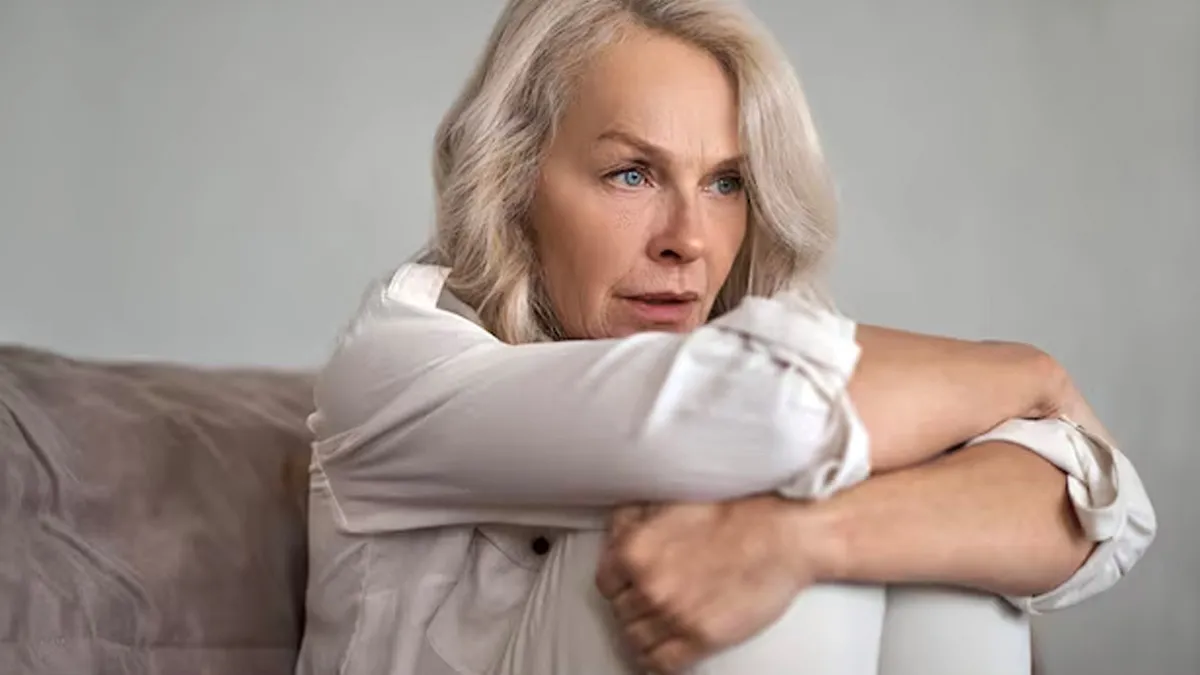
Most women experiencing perimenopause or menopause report that doctors, family members, or colleagues dismiss their symptoms. Such an experience, usually referred to as menopause gaslighting, makes them feel unheard and misdiagnosed, thus causing undue delays in appropriate treatment.
Table of Content:-
Embedded in a centuries-long lack of knowledge in women's health, this dismissal can be a heavy burden for those going through the challenging phase. In order to reverse this, menopause must be recognised as a major health transition, supported by improved medical education and more honest, educated discussions.
Also Read: From Skin Itching To Burning Mouth: Unusual Symptoms Of Perimenopause You Shouldn’t Ignore
What Is Menopause Gaslighting?

Dr Kajal Singh, Associate Professor, Obstetrics and Gynaecology Department, NIIMS Medical College and Hospital, Noida, says, "Menopause gaslighting occurs when a woman's symptoms during perimenopause or menopause are dismissed, minimised, or explained away by others—often by healthcare professionals, family, or society.
It may sound like, "You're just stressed," or "You're overreacting," when in fact, her concerns are valid and physiological.
"This kind of invalidation can lead to emotional distress, delayed treatment, self-doubt, and even shame, making women feel isolated and unsupported during a critical transition in their lives," adds Dr Singh.
Causes Of Menopause Gaslighting

A survey of 183 postgraduate residents from 20 U.S. programs in family medicine, internal medicine, and obstetrics and gynaecology revealed significant gaps in menopause training. As per the 2019 study published in the Mayo Clinic Proceedings, while 94% believed menopause care was important, only 7% felt adequately prepared to manage it. About 20% reported receiving no menopause lectures during residency. Nearly 34% said they wouldn’t offer Hormone Therapy (HT) to symptomatic women without contraindications, and just 39% would prescribe HT for prematurely menopausal women until the natural age of menopause.
“Many women feel dismissed because of persistent ageism, gender bias, and a lack of education about menopause—even within the healthcare system. Symptoms like mood swings, memory issues, or fatigue may be attributed to psychological causes or lifestyle, rather than hormonal changes,” Dr Singh highlights.
Additionally, menopause is still a taboo or stigmatised topic in many cultures, leading to a societal tendency to ignore or minimise women's experiences.
Menopause Symptoms Are Real: How To Advocate For Oneself
To normalise conversations around menopause and to reduce the occasions of menopause gaslighting, women can take several empowering steps. These include:
- Educate themselves about perimenopause and menopause to understand what’s normal and what requires medical support.
- Track symptoms to provide clear data to healthcare providers.
- Seek out menopause-literate healthcare professionals—such as those with training in midlife women’s health or hormone therapy.
- Speak openly with peers or in support groups to normalise the conversation and reduce stigma.
Also Read: What Happens To Your Hair as You Age: 6 Changes And Solutions
Common Menopause Symptoms That Are Often Overlooked

Many menopause symptoms are subtle or overlap with other conditions, leading to them being overlooked or misdiagnosed. Common examples include:
- Brain fog and memory issues – often dismissed as normal ageing or stress.
- Mood swings, anxiety, or low mood – frequently labelled as emotional instability.
- Sleep problems – including difficulty falling or staying asleep, often brushed off without addressing underlying hormonal causes.
- Fatigue and joint aches may be seen as general tiredness or ageing.
- Vaginal dryness or pain during intercourse – rarely brought up or properly treated.
How Can Healthcare Providers Show Support?
Healthcare providers can reduce menopause gaslighting by:
- Listening actively and validating women’s experiences without bias.
- Staying updated with current menopause guidelines and treatment options (like those from NICE or EMAS).
- Avoiding one-size-fits-all approaches and instead providing individualised care.
- Creating a safe, open environment for women to speak about hormonal and emotional changes without fear of being judged.
Conclusion
Menopause can be an overwhelming and lonely experience. But when women are made to feel like their symptoms aren’t real, that pain often deepens. Feeling dismissed by doctors or misunderstood by loved ones can lead to self-doubt and silence when what’s truly needed is empathy, validation, and informed care. It's time we start listening better and supporting women through this life stage with the compassion and respect they’ve always deserved.
How we keep this article up to date:
We work with experts and keep a close eye on the latest in health and wellness. Whenever there is a new research or helpful information, we update our articles with accurate and useful advice.
Current Version